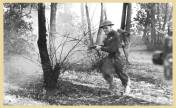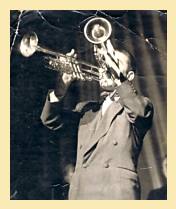
Family History - You Must Remember This

During a recent visit to catch up with family in Melbourne, the subject of past history came up. It was the first anniversary of my sister's death and it was clear that her children were finding it to be a difficult time. Unlike previous reunions when conversation was very casual as we regurgitated the usual anecdotes and reminiscences, on this occasion there seemed an almost desperate need for specific facts. As I was their mother's brother, they expected me to be familiar with the details of: "...what really happened when..." I had a problem with that because most of what I could remember was based on second- or third-hand information; and the only ones who could have verified what actually occurred at the times in question had already passed away.
Perhaps this might seem irrelevant and unlikely to affect the way things are, or are likely to be. However, one only has to read the novel, The Bridges of Madison County by Robert James Waller, to realise that attitudes and lives can change when the true facts of a family's past are eventually unearthed. In this particular example, while going through the personal belongings of their newly-deceased mother, her children discover she had been having a long, secret affair with a man other than their father. As this seemed so out-of-character with the woman they thought they knew, they begin to delve more deeply into the evidence to satisfy their individual feelings on the matter.
Requiring a level of closure is often the reason behind research of this kind, but there is also the simple curiosity factor. For some, that casual interest can evolve into a passionate quest to revive old acquaintanceships and search genealogy websites for more information than memory and a few old photos can provide. This is how it was, and is for us. And we have come to realise the sad truth that we only have to pick up a book to learn more about the life and times of Mary Queen of Scots than we know about our own family history.
My advice to one and all is - don't let it die. Your own current deeds and experiences, your memories even, won't last forever. Maybe, at the moment, you are too young to care that stories told about you after you are gone aren't the whole truth; but someone might - surviving relatives and friends especially. Then there are those of us who are growing older and wish we'd taken more notice of Grandma's chatter. It's too late now, of course, for us, anyway. But there's no reason future generations have to miss out on the beginnings of their family, as long as we recall what we can and write it down now before we too shuffle off this mortal coil taking the early days of our family with us.
The notion of writing memoirs could seem daunting, even pretentious. After all, most of us are ordinary people who aren't likely to do anything which might change the course of history. But this isn't intended for publication, so it doesn't have to be a literary masterpiece. Neither does it have to be a chore. Treated the right way, the end result can be quite entertaining. As an example, I would like to share with you my first attempt at recording events which began to unfold just before I was born, and which set the stage for my own family's future. Needless to say, the story is not about me, but about my father, his aspirations and the turns of fate that shaped his life and ours. I believe it makes interesting reading. Please decide for yourself.
George's War - For King, Country, and a Dream

The story is set in the North of England which is where the family seemed to have originated. My father, George, lived in the small Nottinghamshire town of Worksop. Here was one of those places you either loved or hated. It was a mining town where the men would go to work on a cooked breakfast and return later covered in coal dust. Their home was a two-up two-down terraced house which smelled of soot and bacon fat. Each evening, they would go to the pub for eight or nine pints of warm, murky beer, eventually stumble home to bed, then start over again the next day. A few of the more talented would be members of a brass band. Most towns had one and Worksop was no different. Maybe this was George's problem - the sameness. Nothing ever happened that hadn't before, and anyone who remained there faced a lifetime of boredom and repetition.
Born in 1910, George decided from an early age that digging coal would never be his forte. Music, however, was in his blood, so to follow the family tradition by playing cornet in the town band wasn't so much a compromise, as it was a starting point for his career. Being unpaid, however, it didn't put bread on the table, so to keep himself out of the mines, he opted to work for a local printer. It was soon to be the day-job he would give up to follow his dream.
Dance bands were popular in those days and George started out like most musicians, moving from one established band to another, trying to make a name for himself. This took time, but he was achieving a fair amount of success, not just as one of the boys, but also as a feature soloist. His ability to perform a duet on his own by playing two trumpets at the same time certainly attracted the autograph hunters and the attention of the press, albeit the local rag.
Then something that had been brewing for a while came to the boil and war was declared. Despite the fact that it would most likely put his musical career on hold, George rushed off to join up. For King and Country was his excuse; Mum said he and his mates simply figured it would be fun, a great adventure. There was no thought of consequences, no fear of being killed or maimed. Not that he would be in any more danger than the population at large - the Army would see to that.
They had a policy: whatever may seem to be right and for the best, do the opposite. George didn't know this, of course, so when he was asked to state on his enlistment form where he preferred to serve, he must have been excited by visions of foreign climes, or at least somewhere different to the industrial North. The Army, however, took a more practical and selfish view when issuing his posting to the Royal Army Ordnance Corps, Chilwell. So much for the adventure of serving overseas. George was stuck in a military supply depot 2 miles down the road from where he lived!! He wasn't the only one. Other musicians were caught in this particular trap, all ending up at Chilwell. Whether by clever military manipulation, or pure chance, the result was the birth of The Blue Rockets.
Click this ![]() image to view or print complete article.
image to view or print complete article.
Money Health Focus Popcorn Recipes eBooks About Contact
copyright © 2011-2015 All Rights Reserved
Includes all photographs and images
